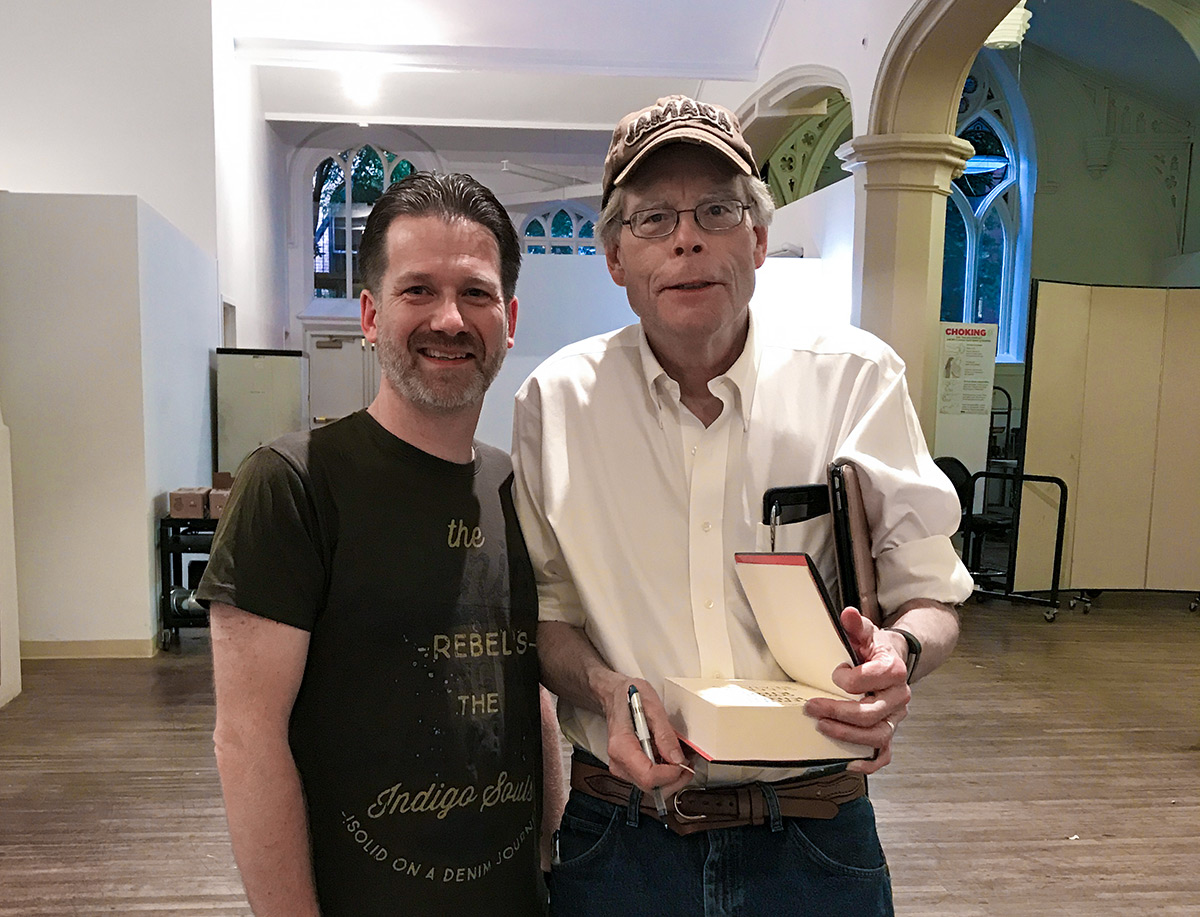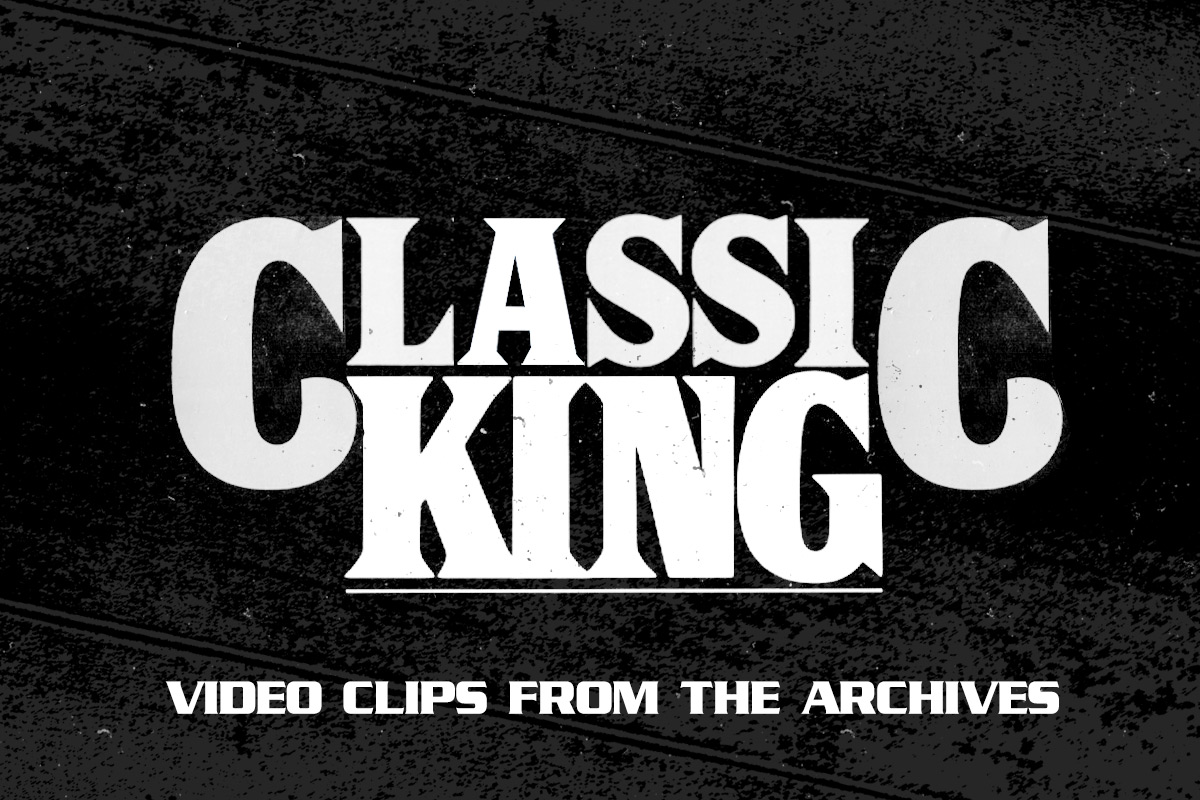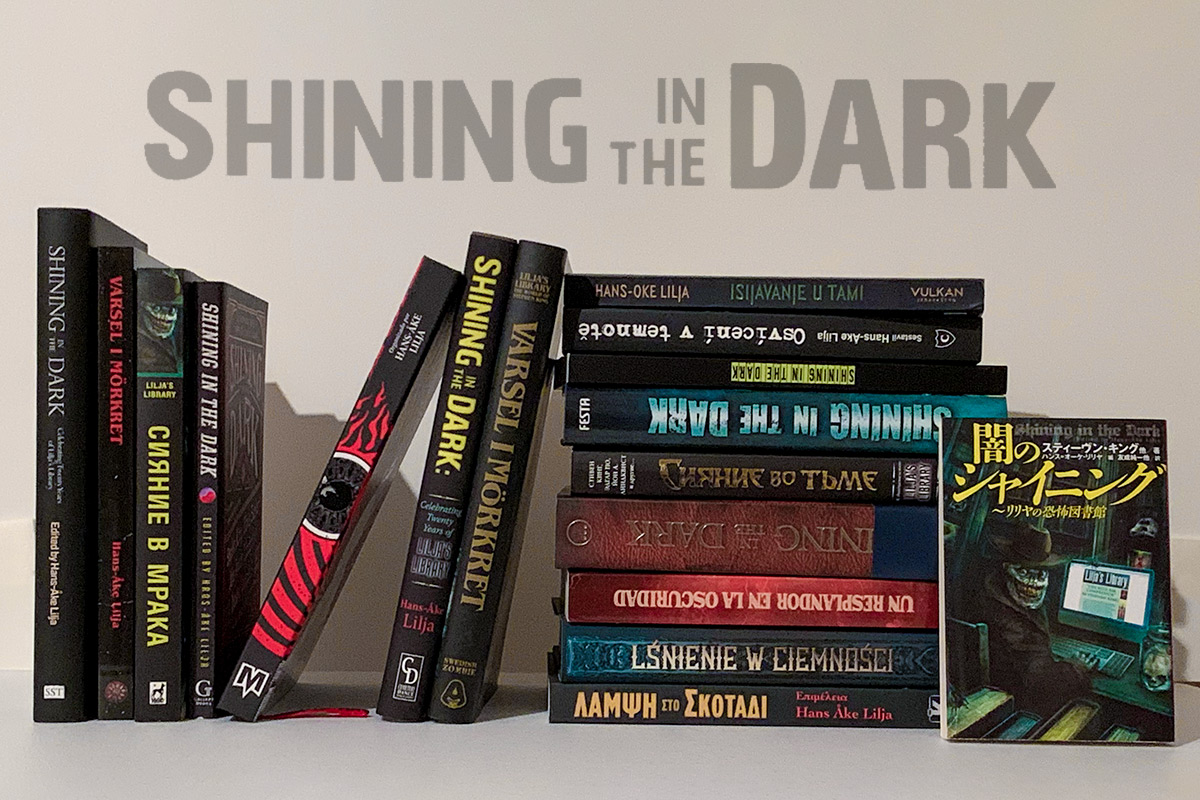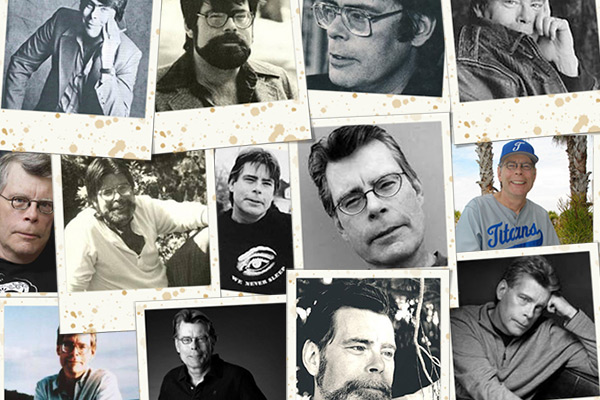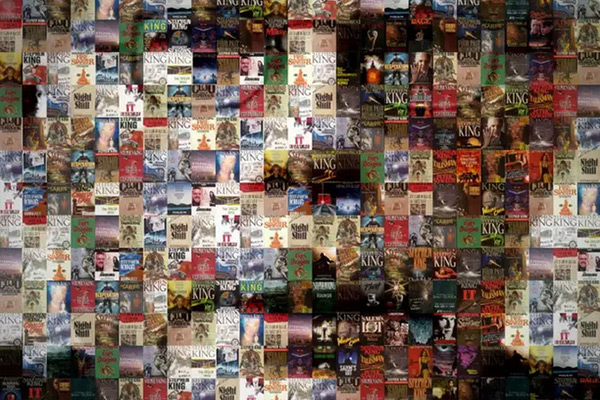Jim Murray
Posted: April 9, 2016
_
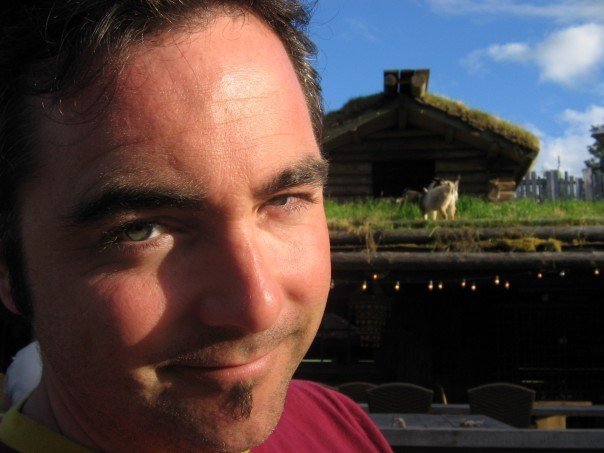
Jim Murray: My official title is props master or property master depending on which show. So I basically take care of anything that the actors touch. So a good example of that would be, let’s use 11.22.63 for example. The Yellow Card Man had the yellow card so I have to figure out what the yellow card was and either build, find or get it. Or the sledgehammer that was used, the different weapons, any food, all recording equipment. Anything that the actors interact with is what I take care of. Stuff like desks, table lamps, chairs, carpets that is all taken care of with the set deck department. Obviously an actor sits on a chair, that’s not me, but if there is a bomb attached to the chair that would be me. Or if the actor turns over and grabs a pen and starts writing on a piece of paper, the pen and paper would be me. And I have to work to make sure that everything works with everyone’s look. So there is a certain look we pick and then we have to make sure we stay under that umbrella for that look.
Lilja: How much in advance do you start planning for a film or TV series? There is a lot of stuff you need to find or make.
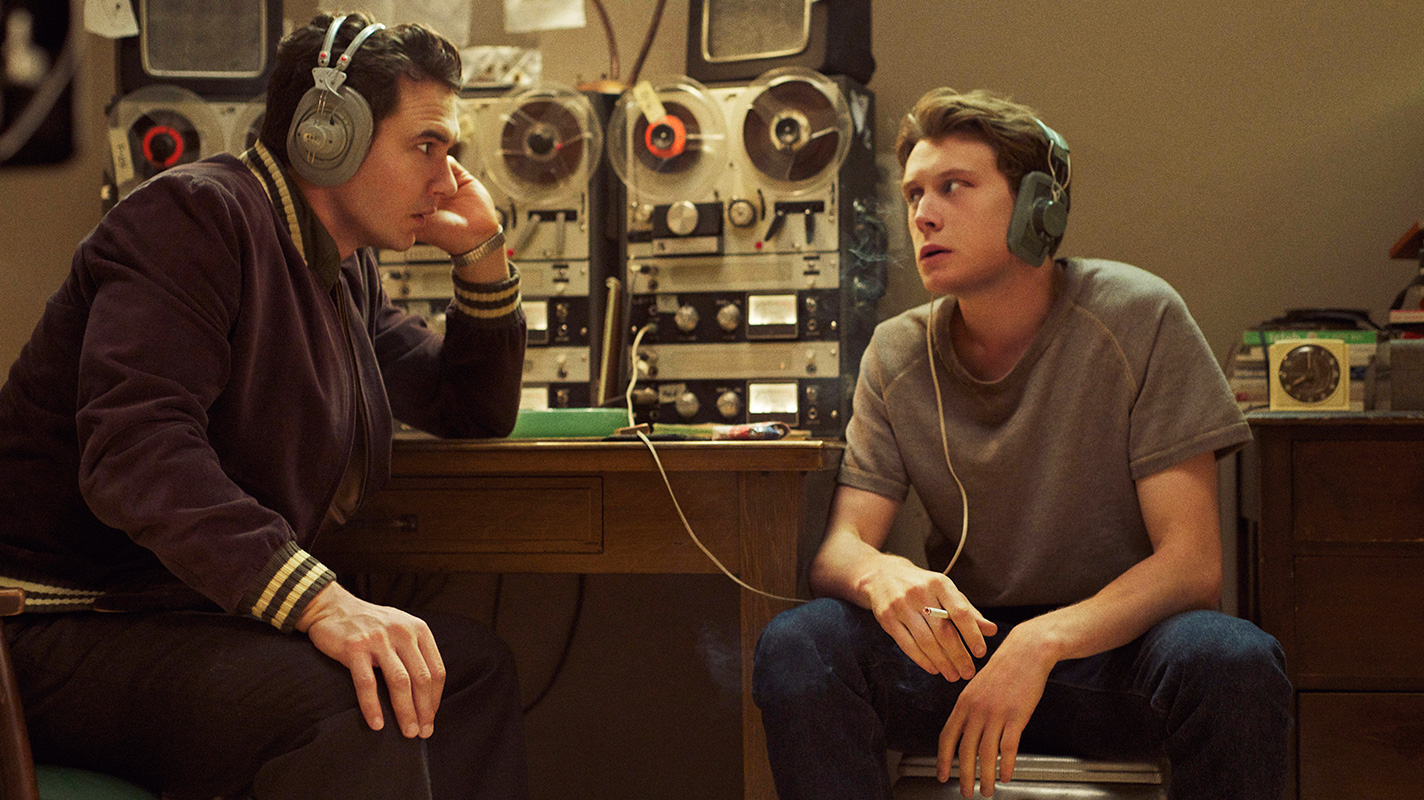
Jim Murray: Well, just think about your everyday life. You got your bag, you go to work and everything you have in your bag is stuff you have as a person. So when you’re on a show you have to start thinking of those characters and what they use. For instance Jake, he’s got all of this stuff and he is a character and James Franco is going to want to play in a certain way and we see him in a couple of different time periods. So anything that he would have establish for him as a character as you would in your life. You got your car key, you got your water bottle, you got your satchel and you got everything in your satchel. You got your wallet and in it you might have photos of your kids or some money or receipts. I flesh all of those things out. And depending on who the actor is and how detailed they want to get, some of those actors got stuff that we don’t even see, we create character things. Some might want to have things in their pocket because they are establishing the character. We don’t see those props but they are there to help that actor get into the role. So depending on the project it dictates how much time I get. For 11.22.63 I think I had 6-8 weeks. Maybe 8 weeks to prep.
And movies are like circuses. We move into town, set up, do what we need to do, we tear down and go away. So I would go in and break down the scripts, figure out what all the stuff is, have a meeting with the director and the designer because I’m usually hired by the designer. Some request me because they have worked with me before and they like me. Some like me because I can stay on budget. Once I have all my meetings I put together a budget and sometimes they say we have like 100,000 dollars for props or you have this much and I’ll have to tell them what they can get for that. If they want more they have to increase the budget.
Because 11.22.63 was a period show it was much easier to work on in the sense that we have historical references on everything from the beginning to end. We know what the JFK campaign buttons look like. We know things from that time so working on a period piece is much easier than say a space show that’s set 20 years in the future. We can do what we want but that is harder than doing historical pieces. There are a lot of rental houses where we rent our stuff and if we know that we’re doing a 60’s thing I just send out the buyers to the antique shops to get stuff from that period for the background stuff. Anything character or script specific we’ll look for on eBay or Amazon or build it if we can’t find it.
Lilja: When did you start working with props?
Jim Murray: I first started doing props like 25 years ago and it was a lot harder because there was no internet. We used phone books and you were limited to what you could do but now I do probably 60-70% of my prop shopping online and have the stuff sent to me because I can shop the world now and get better options. So if it requires an antique sledgehammer from 1960 I could just type that on eBay and cross-reference it with historical photos and buy it rather than to go to 30-40 stores.
Lilja: What happens with everything you buy for a show? Do you store it?
Jim Murray: They tend to want to rent as much as possible because then there are no stuff for them to deal with at the end of the shooting. With 11.22.63 being a miniseries we know we weren’t going back so what basically happened was that we purchased a lot, rented a lot and they, at the end of it, put it in a trailer and sold it at a set sale.
Lilja: So then you have to do it all over if you do another movie about the JFK assassination?
Jim Murray: Yeah. All of our stuff from 11.22.63 is gone and there is a new miniseries, a sequel to “The Kennedy’s” and none of our stuff is available to them. It’s frustrating.
Lilja: But there is a market for people to rent out stuff to movies?
Jim Murray: Yes, I got all kind of different vendors that rent me stuff. There is pretty much vendors for everything.
Lilja: So you can actually make a movie and then go to a movie years later and find stuff that you used in your movie?
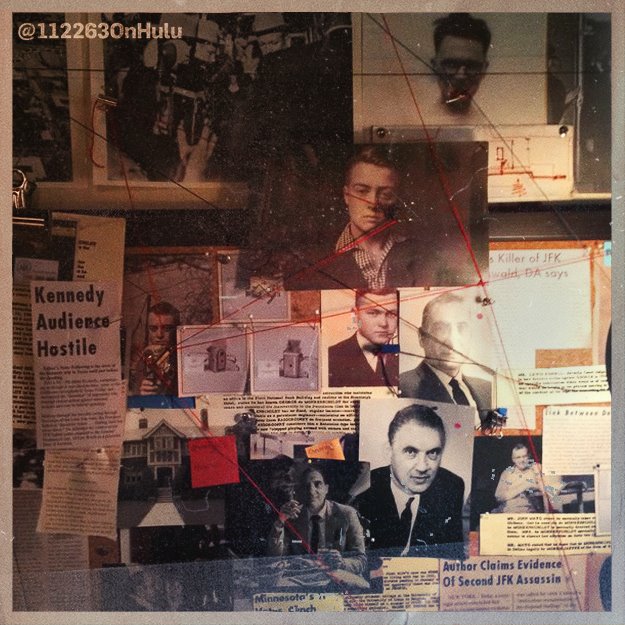
Jim Murray: Yes. If I know that stuff has been rented a lot I try to avoid them. And we do a lot of stuff our self. All the files in 11.22.63, Al’s files, those were scratch built. We built them from scratch. I sent them out to someone who do all my paper stuff. All their focus is on building me paper stuff. So that photo that Bill has of his sister; wWe took that photo, the art department put it on paper and I sent it out to my paper builder to age and to cut the corner and all that stuff on it.
Lilja: And I guess you do several of each thing if someone would happen to break?
Jim Murray: Yeah, once we start rolling on a TV series or a movie it’s no stopping it. You don’t want to be the department that slows it down because if you do you have a problem. You probably won’t get hired again. And everything breaks. Cause if you give an actor a glass and they drop it in a reset you need to go “wait I got another one”. So we avoid buying a 3000 dollar crystal glass because they might break. We always have doubles to the hero of everything. The hero meaning the one we see the most of. So if the actors wear a watch we always buy a second watch so if we lose the watch we have another. So we have to budget for that and that is why a pen in my breakdown cost 50-100 bucks. It might only be a 3 or 10 dollar pen but I got to buy six pens. Show the six pens to the director, decide which one we want to use. Return the others and then buy more of the one we picked. So nothing is like just getting one.
Lilja: Are you trusted to handle all that or do you have to run it by the director.
Jim Murray: It depends on the director. Some trust me and know my judgement but it’s always best to show everything to everyone. What you don’t want is someone on set, we might be shooting at two o’clock in the morning in a rural area and the director goes “what the **** is this? I hate this” and you don’t want that to happen.
Lilja: What was the biggest challenge with 11.22.63?
Jim Murray: The biggest challenge for 11.22.63 was when you work with a book you already have a fan base. So what you have are people that have already planned it and mapped it and seen it in their minds because they read the source material. So the hardest thing is to be true to what the director wants while being true to what the fans expect from having read it already. It’s much easier if it’s something new that no one has read already. We try our best but we are always going to disappoint people and that’s probably the hardest thing.
Lilja: Do you read the book as well or do you just focus on the script?
Jim Murray: I tend to read the books. I think it’s important to understand the source material. Sometimes it’s good and sometimes it’s bad because sometimes the scripts we get are very different from the book. I think it’s also good to read the book because what you can do is you can tip the hat to the people who read it and put in subtle things that, because I deal in the world of things that people touch. So the book might have specific things like the yellow card, things that people connect with when they read the book. If there is a name in the book that we can reference to on somebody’s name tag the hardcore fans see those things. I think that is important.
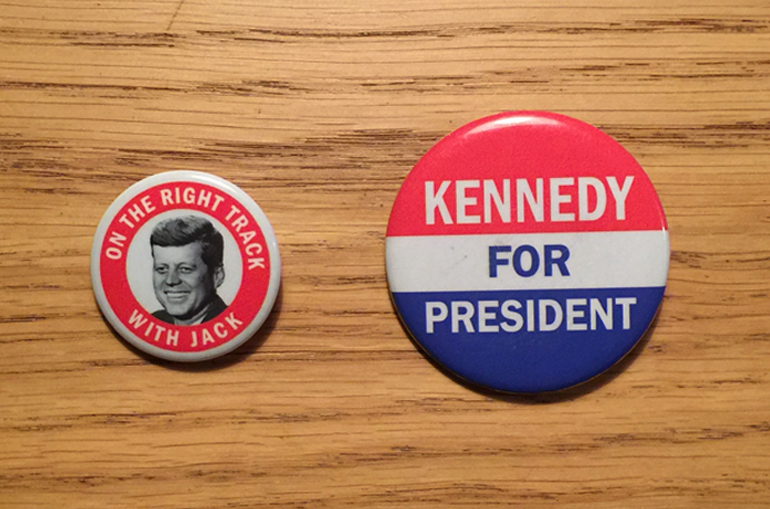
Lilja: And it’s interesting. If you do a good job people won’t notice your job.
Jim Murray: Exactly. If we get it right you don’t notice. If we get it wrong you notice. I have been on shows that takes place in the 40’s and they didn’t have the budget to get it right. I brought that up but they didn’t care. They said no one would notice but people do notice. The easiest show to work on is a contemporary show because I can just run out and buy things. It exists. Everything in the future has to be built because it doesn’t exists and anything not contemporary has to be historically right. We try to get it right but sometimes the ball is dropped or there isn’t budget for it and we don’t get it right.
Lilja: Yeah, and then we can read about it on IMDB.
Jim Murray: Exactly! And it always happens.
Lilja: Yeah and I think that as a viewer it’s kind of fun to find those small things but I guess you don’t think so since it’s your job? [laugh]
Jim Murray: Absolutely, it’s totally entertainment when it’s not my show [laugh]. And it bothers me when there is a wrong way to do it and a right way to do it and they pick the wrong one. It’s on me as the props master. It’s not like I can put a disclaimer saying “Jim Murray didn’t pick this prop, somebody else did that”. It reflects badly on my work. But then I am a contractor and what you want is what I’m going to get you because that is my job.
Lilja: How much of an expert are you on stuff after having researched so much for shows and films?
Jim Murray: I have done movies in 1864 in New York, space shows, drugs shows and a lot more shows and I become an expert for the time I need to be an expert and then I generally forget about a lot of things. Now I know a lot about the 60’s and I know a lot about the Kennedy’s but a lot of the stuff I don’t hold on to.
Lilja: When you go in stores as a private person, do you constantly see stuff that you can use in upcoming movies?
Jim Murray: Yeah, I’m constantly stockpiling ideas in my head that I could use later on. You do look at the world differently when you’re a prop master. Always looking for interesting things. And if you said to me “Jim, I need to find this…” I could probably find it for you. I’m really good at sourcing stuff.
Lilja: Have you done any other Stephen King stuff?
Jim Murray: No, I haven’t and the one day he was on set I missed him…
Lilja: Hopefully you’ll get a chance to work on another King adaptation. Thank you so much for taking the time to speak to me. I enjoyed this behind the scenes tour a lot.

